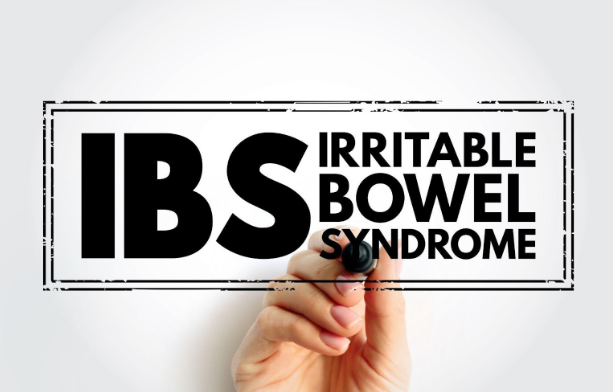Colon Cancer- Symptoms, Causes, and Treatment Options
Colon cancer is a disorder that affects the colon, a 5-6-foot-long tube-like organ that connects the rectum to the small intestine. The colon, also known as the large intestine, helps move the digested food towards the rectum, from where it exits as stool. Colon cancer is characterized by the uncontrolled proliferation of cells in the colon, and it is the third most common type of cancer affecting people in the USA. It is estimated that about 1 in 25 women and 1 in 23 men will eventually develop colon cancer during their lifespan.
.
Types of Colon Cancer
The most common type of colorectal cancer is adenocarcinoma, a cancer that starts within the cells that produce mucus in the colon or rectum. Other less common types of colon cancer include:
- Carcinoids - Carcinoids develop in hormone-producing cells within the intestine.
- Sarcomas - These develop in the muscles of the colon.
- Gastrointestinal Stromal Cancers - These cancers form as benign tumors that can turn cancerous.
- Lymphomas - These cancers develop in the lymph nodes.
Stages of Colon Cancer
Doctors use stages to determine how far the cancer has progressed. The treatment strategies are also determined based on the stage of cancer. Colon cancer progresses from stage 0 (the earliest stage) to stage 4 (most advanced stage). Stages of colon cancer include:
- Stage 0 - The abnormal cells are confined to the inner linings of the colon. This stage is also referred to as carcinoma in situ.
- Stage 1 - The cancer is no longer confined to the inner lining and may have spread to the nearby muscles.
- Stage 2 - Cancer spreads to the walls of the colon, and may have also spread to the nearby tissues.
- Stage 3 - Cancer spreads to the lymph nodes.
- Stage 4 - Cancer metastasizes., i.e., it has spread to other organs like the lungs or liver.
Symptoms of Colon Cancer
People usually do not experience any symptoms in the early stages of colon cancer. However, some symptoms that are observed up to Stage 2 colon cancer include:
- Diarrhea
- Constipation
- Alterations in stool color
- Alterations in stool shape
- Bloody stools
- Abdominal cramps or pain
- Rectal bleeding
- Excessive gas
Other conditions may also cause these symptoms. However, if these symptoms exist for more than two weeks, it is necessary to discuss these with a doctor. The symptoms become more noticeable during Stage 3 or 4 of colon cancer. In addition to the above symptoms, people may experience the following:
- Unintentional weight loss
- Excessive fatigue
- Weakness
- Alterations in stool lasting more than a month
- Vomiting
If colon cancer metastasizes, the following symptoms may also be observed:
- Chronic headaches
- Blurred vision
- Bone fractures
- Difficulty in breathing
- Yellowing of skin and eyes (Jaundice)
- Swelling of hands or feet
Causes of Colon Cancer
Research is still ongoing to find the causes of colon cancer. Under normal conditions, cells grow, multiply, and die to keep the body healthy and functioning appropriately. However, this process sometimes gets altered due to changes (mutations) in the DNA of cells. These mutations, which cause cells to multiply rapidly, can be inherited or acquired. This results in the formation of abnormal deposits called polyps in the linings of the colon. Polyps are benign, which, if left untreated, can become cancerous and spread to nearby tissues and organs.
Risk Factors
Factors that increase the risk of colon cancer include:
- Age - People aged 50 or older have an increased chance of being diagnosed with colon cancer, though it can be diagnosed at any age.
- Ethnicity - African Americans have an increased risk of colon cancer.
- Personal History of Polyps or Colon Cancer - If a patient has a history of polyp or colon cancer, they have an increased chance of cancer relapse.
- Family History of Colon Cancer - The risk of colon cancer increases if a blood relative was previously diagnosed with colon cancer.
- Inflammatory Disorders - Inflammatory conditions of the colon like Crohn’s disease and ulcerative colitis increase the risk of getting colon cancer.
- Diabetes - Diabetes increases the risk of developing colon cancer.
- Obesity - Individuals who are obese have an increased chance of getting colon cancer compared with individuals who have normal weight.
- Smoking and Alcohol - People who smoke a lot and individuals who consume alcohol excessively have an increased risk of developing colon cancer.
- Screening Tests - Diagnosing colon cancer at its nascent stage is critical to positive clinical outcomes. The American Cancer Society advocates for screening for colon cancer from the age of 45, though it is expected that at-risk individuals may be screened at a younger age.
Screening Tests
The doctors usually begin the screening by knowing more about an individual’s medical and family history. The following are some routinely performed screening tests for colon cancer:
- Fecal or Stool Tests - Fecal tests are performed to detect blood in the stool. Commonly performed stool tests include:
- Guaiac-based Fecal Occult Blood Test (gFOBT): This test uses the natural compound guaiac to detect the presence of blood in the stool. The stool is placed in a guaiac-coated card, which changes color when there is blood in the stool.
- Fecal Immunochemical Test (FIT): Antibodies are used in this test to detect blood.
- FIT-DNA Test: This test is a combination of FIT and another test that detects DNA changes in stools.
- gFOBT and FIT are generally performed once a year, whereas the FIT-DNA test is recommended once every 3 years.
- Flexible Sigmoidoscopy - This is a minimally invasive technique for examining the sigmoid colon. A flexible, short tube with a light is inserted into the rectum to detect the presence of polyps or cancer. This is generally performed every 5 or 10 years.
- Colonoscopy - This test uses a longer tube than the one used in flexible sigmoidoscopy to check or remove polyps or cancer in the entire colon. This is generally used as a follow-up test if something unusual shows up in other screening tests.
- Computed Tomography (CT) Colonography - CT colonography, also known as virtual colonoscopy, makes use of X-rays and computers to create detailed images of the colon.
- Blood Tests - Routine blood work like liver function tests or kidney function tests would also be recommended to assess an individual's overall health. Additionally, a carcinoembryonic antigen (CEA) test may be recommended to assess how a person responds to colon cancer treatment.
Treatment Options
Colon cancer treatment depends on several factors like an individual's overall health and the stage of progression of the colon cancer. The treatment strategies for colon cancer include surgery, chemotherapy, radiation therapy, targeted therapy, and immunotherapy.
Surgery
Surgical procedures can be used to remove polyps (polypectomy) via colonoscopy or laparoscopic surgery. If cancer has progressed, a part of the colon (colectomy), rectum, or lymph nodes may also be removed.
Chemotherapy
Chemotherapy involves using drugs to kill cancerous cells and is generally recommended for patients post-surgery to control the growth of cancer and prevent reoccurrence. Commonly used drugs for the treatment of colon cancer include capecitabine, fluorouracil, oxaliplatin, and irinotecan. These drugs can also target healthy cells lining the gastrointestinal tract, bone marrow, and hair follicles and, thus, can cause side effects. The side effects of chemotherapy depend on the drugs used, their dosage regimen, the period of treatment, and the patient. Since chemotherapy affects the bone marrow, patients may be at greater risk of developing infections (due to low white blood cells), anemia (due to low levels of red blood cells), and bleeding (due to low levels of platelets). Other common side effects of chemotherapy include:
- Vomiting
- Nausea
- Alopecia (hair loss)
- Rashes
- Diarrhea
- Mouth sores
- Loss of appetite
Radiation Therapy
This involves using energy sources like X-rays to kill cancer cells. Usually, radiation therapy is combined with chemotherapy as a comprehensive treatment plan.
Targeted Drug Therapy
Targeted therapies involve the use of monoclonal antibodies that target specific antigens present in the cancer cells. Some monoclonal antibodies approved for colon cancer treatment are bevacizumab, pembrolizumab, panitumumab, etc.
Immunotherapy
Immunotherapy is a novel treatment strategy for colon cancer wherein an individual’s immune system is used to destroy the cancer cells. These are generally reserved for advanced stages of colon cancer.
Palliative care
Palliative care is an interdisciplinary field of medicine that emphasizes on providing relief from suffering and pain endured during a chronic illness like cancer. Palliative care is generally offered along with other treatment strategies and is intended to improve the quality of life of a cancer patient.
Prevention of Colon Cancer
Though certain risk factors like age and family history are unavoidable, lifestyle factors that significantly increase the risk of colon cancer could be prevented. The following lifestyle modifications can be encompassed to reduce the risk of developing colon cancer:
- Decreasing the consumption of red meat
- Avoiding consuming processed and fast foods
- Increasing intake of plant-based foods
- Abstaining from smoking and reducing alcohol consumption
- Exercising regularly
- Maintaining a healthy body weight
- Management of pre-existing conditions like diabetes
Many lives can be saved if colon cancer can be detected at the earliest stage. Therefore, regular screening tests like colonoscopy are critical for positive clinical outcomes. Schedule an appointment with Northlake Gastroenterology to know more.
More Blogs












